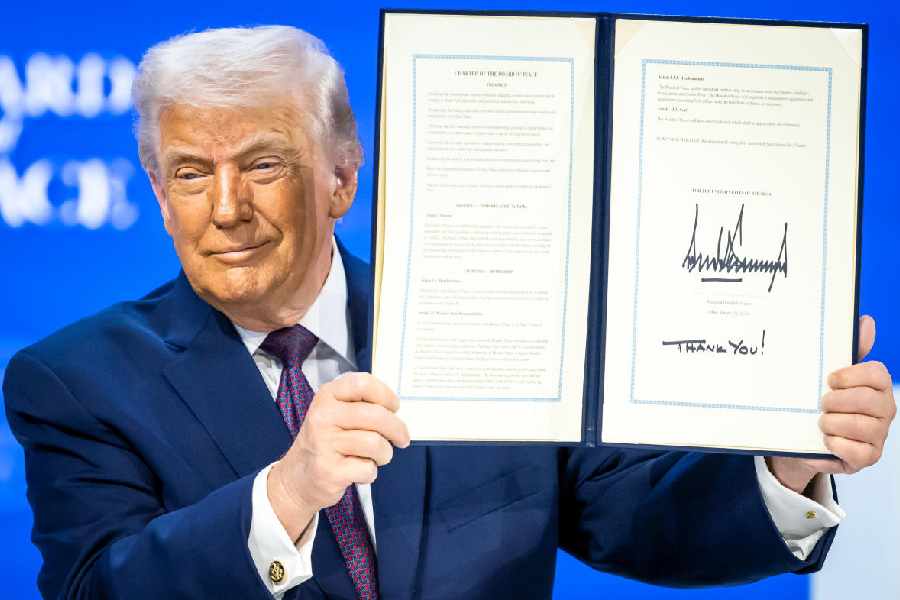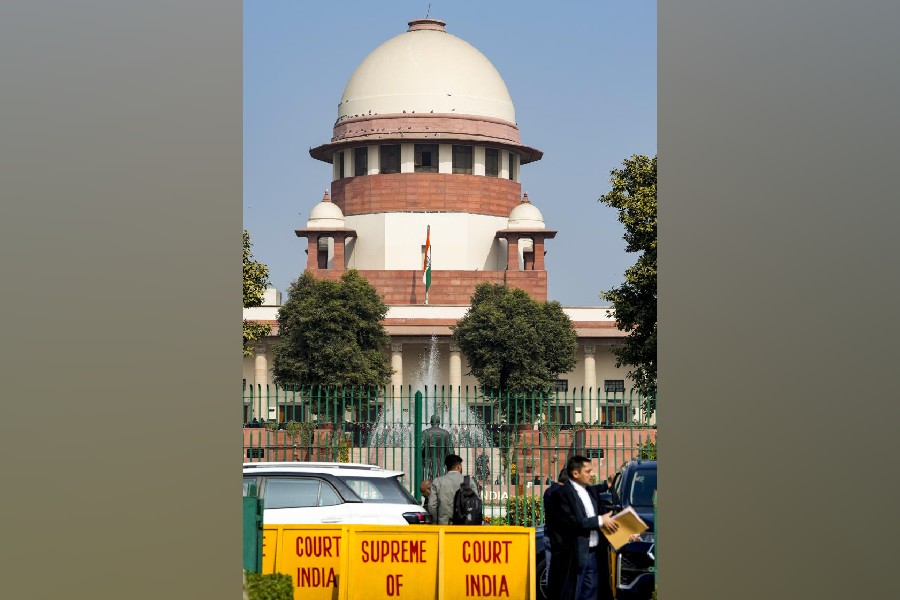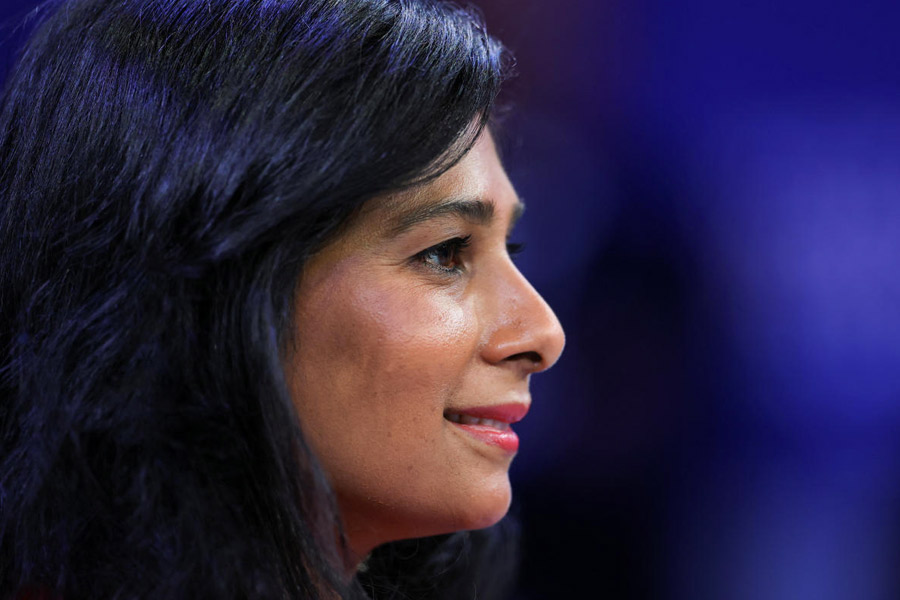.jpg)
This is my out of work look," Ranvir Shorey says with a straight face. He is referring to his Mohawk cut which, well, looks different from the hairstyles that Hindi film actors generally sport. But then the man - who uses the F-word liberally as he talks - is different.
It's difficult to imagine Shorey - lauded for his comic timing as a crass unemployed Delhi boy in Khosla Ka Ghosla (2006) or as the income tax officer in Bheja Fry (2007) - as a Bollywood actor. Perhaps that explains why you don't often see him in films. But he has no problems with that.
"The kind of work I refuse is the kind of work that should be refused. So I have no films," he says, neatly rolling a cigarette.
But he is gung-ho about his new film - Titli, produced by Dibakar Banerjee and Yash Raj Films - to be released on Friday, October 30. He wants me to watch the film's trailer. "No interview will be complete without the journalist watching the trailer," he declares as he switches on his wall-mounted flat screen. It's a grim trailer, showing glimpses of the business of carjacking that thrives in the badlands of Delhi. "Do you want to watch it again," he asks excitedly.
It's a humid evening in Mumbai and we are sitting in the living room of his fourth floor apartment. It has been tastefully done up, with comfortable couches, green and white curtains, bookshelves, a piano and music console. The centre table has a pile of MAD magazines on it, and at the far corner is a guitar next to a small workstation.
Shorey, 42, is ecstatic about his new movie. Directed by Kanu Behl, Titli has been screened at Cannes, travelled to two dozen international film festivals, won awards and opened to box office success in France and Germany.
"Cannes was a culture shock. First, you realise how much cinema is celebrated there - just the medium and not the stars. And then you see how utterly small the Hindi film industry is. We sit here and feel pompous about being the world's largest producer of films in numbers. But no one is looking at us," he says.
The film got a standing ovation at Cannes, along with outstanding reviews.
" Titli talks about patriarchy, violence in marriage and the need to get away from family," Shorey elaborates. "Unlike Khosla ka Ghosla which was light and optimistic, this is a dark and intense look at the Indian family."
Speaking of families, Shorey has been in the news for the breakup of his marriage. He and the actor Konkona Sen Sharma announced their separation on social media last month after five years of marriage. They continue to remain friends and co-parent their son, Haroon.
"We separated, let's say, because of romantic reasons," he says.
Shorey is going to smoke another cigarette. He walks up to a large window, opens it and sits on the edge. From inside the bedroom, we can hear his five-year-old son arguing with his nanny. "Haroon, can you please keep it quiet? We are working over here," he pleads with his son. The voices fade away.
He and Sen Sharma have worked together in films such as Traffic Signal, Mixed Doubles, Aaja Nachle and Gour Hari Dastaan - The Freedom File. After separating, he moved into a flat two buildings away from his old house.
I praise the way he has done up the apartment. "Please write about it so that my wife can read it, too," he says with a tinge of pride. The two mahogany bookshelves, where Kafka fights for space with Rushdie and Tolkien with Einstein, underline his literary choices. I am looking around when Haroon walks in and asks if he can have some chocolate.
So how difficult is single parenting, I ask him.
"Parenting is tough but fun. When he was six months old, I fed him a pear. So now we have this ritual where we eat fruits together. If I tell him that I'll have some fruit without him, he'll start howling," he smiles. He shows pictures on his cell phone of his son eating his first papaya.
"Earlier, I used to take selfies and now I click Haroon. It is kind of sad. Seems I have no life left outside of it," he says, and sighs.
<,>B<,>orn in Jalandhar, Shorey was raised in Mumbai. "Till 15, I was a good student, with A grades. I was good in dramatics, debates, and academics. Then college happened and suddenly the world exploded," he says.
He never finished college. "First I took science, then I changed to commerce and in the second year it was arts. Then I quit college." Later, he enrolled for a diploma course in film video production at the Xavier Institute of Communications in Mumbai.
A trained sitar player, Shorey started his career with television. He was a popular VJ on Channel V where he and actor Vinay Pathak became a hit pair. From TV to cinema was just a short step. He got his first Bollywood break in Ek Chhoti Si Love Story (2002) opposite Manisha Koirala.
"After my first few films, I went to train at the Atlantic Theater Company in New York and studied practical aesthetics. There's a marked difference in my work pre and post Atlantic Theater."
Shorey grew up on cinema - and with film stars around him. His father, K.D. Shorey, was a film producer who'd worked with actors such as Raj Kapoor, Sanjeev Kumar, Shatrughan Sinha and Rishi Kapoor.
"You could say that being almost born into the business and growing up on the fringes of the Hindi film industry made me enter this profession," he says. Clearly, he didn't want to follow in the footsteps of his mother, who was a Hindi professor.
Shorey adds that he has also seen the "darker side" of Bollywood. "We went from owning a two-storey house to living in an apartment on rent within one year when my father's films flopped. It was quite traumatic. So I wanted to prove myself in this industry."
He gets nostalgic, recalling the family's close links with the world of cinema. He was, he adds, named after actor-director-producer Raj Kapoor, whose actual name was Ranbir Raj. "But instead of Ranbir, the name became Ranvir," he laughs, explaining that it was misspelt by the person who had taken him to school for admission.
From the past, we move on to the future. He is now going to get busy with rehearsals for plays staged by director Rajat Kapoor. He has also gone back to television - he was a participant in an adventure show and an anchor of a reality dance show. Does he have any plans of appearing in Bigg Boss - a popular but not exactly critically acclaimed television reality show which packs people in a house and evicts members one by one?
"I will go to Bigg Boss when I think I want to die. Every year they call me and every year I ask them to call me next year. Luckily, every year I get some work to sail through the year," he grins.
Part of his work is political, though he stresses he has no plans of joining politics. Shorey helped set up the Aam Aadmi Party (AAP) in Mumbai. But he quit the party when founding members Prashant Bhushan and Yogendra Yadav were shown the door.
"In less than one year after coming to power in Delhi, the leaders in AAP have become as bad as other politicians. It's so sad," he laments.
It was during Anna Hazare's India Against Corruption protests that he first joined the movement. "A few years ago in Bihar, encephalitis had killed hundreds of children. Food and medicines meant for them were being siphoned off. Could things have got any worse? That was when I felt the need to do something. I went to Delhi to support Hazare at Ramlila Maidan," he recalls.
Shorey is vocal about the Dadri lynching, killing of rationalists and the beef ban. "I am a Hindu and I eat beef. I have no qualms about it. I don't know what brownie points the state government is going to get with this ban." He discusses the "hate politics" at work in Uttar Pradesh and the so-called "pseudo-secular" parties. Active on social media, he is one of a very small group of actors willing to publicly voice their views. As a result, he is a favourite with trolls who often abuse him on Twitter.
The actor now supports Bhushan and Yadav's political outfit, the Swaraj Movement. "But I will not enter politics. And I don't have any agenda to be friends with people in power. I just want them to address issues that affect all of us," he says. And that, as they say, will only happen in a month of Sundays. Or when Shorey is on Bigg Boss.

.jpg)








